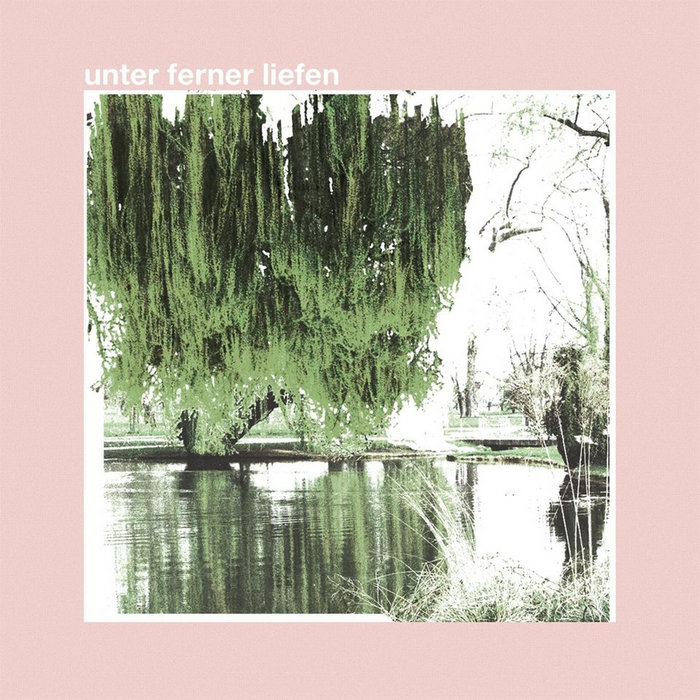
Rantanplan – Borni
this blog is GROOVY – check out great Soul, Funk, Jazz, Hip Hop, Bass, Breaks , Reggae, House n many more TUNES
If you’ve ever found yourself in a late-night café, the aroma of freshly brewed coffee swirling around as melodic tunes drift through the air, chances are you were vibing to some funky sounds from the genre known as Fenster zum Spät. It’s not just music; it’s an experience — one that combines whimsy with profound emotion and has its roots deeply embedded in European culture.
Imagine a musical window flung wide open at dusk, letting in cool breezes and hints of laughter. Literally translating to “Window to Late,” Fenster zum Spät emerged from Germany’s vibrant underground scene in the late 1990s and early 2000s. Think indie folk meets lounge jazz, all while lounging on vintage couches adorned with quirky cushions.
The essence? Chill beats layered over poetic lyrics that might delve into themes of love, longing, or absurdity—sometimes all three! Musicians often pair their catchy choruses with quirky instrumentation like ukuleles, melodicas (yes!), and even kazoo solos (seriously). They evoke images of lazy afternoons blending effortlessly into twilight nights where every moment feels golden.
The genre took inspiration from various sources:
German Cabaret – This is where theatrical flair meets musical brilliance. The likes of Kurt Weill influenced many durch die Straßen performers.
Folk Traditions – Traditional German folk music was reimagined with modern twists; think “Heidi” but make it hip.
Jazz and Lounge Music – Smooth crooners added that extra sprinkling of jazzy vibes blended perfectly for your evening chill sessions.
Pop Culture References – You’ll find nods to everything from classic movies to modern memes woven throughout lyrics—a delightful blend!
Fenster zum Spät didn’t hit mainstream until around 2010 when musicians started posting their groovy tracks on platforms like Bandcamp and SoundCloud—kind-of like DIY digital house parties featuring eclectic artists sharing their tunes instead!
Some notable names include:
Luna Licht: Known for her sun-soaked melodies paired with abstract yet relatable lyrics.
Die Quirks: A band famous for using bizarre instruments—all hail the kazoo!
Felix Freidenker: The kingpin who blends electronic elements seamlessly into acoustic realms snowballing his soundscape into pure delight.
With such unique creations come humorous quirks—check out these amusing anecdotes surrounding our beloved Fenster zum Spät musicians:
The Kazoo Incident: Die Quirks once set out to hold a concert entirely based around kazoos after one member lost his voice during rehearsal thanks to an ill-fated karaoke night! Kazoos ruled supreme that night—and surprisingly went viral online!
Moonlight Jams: Felix Freidenker famously recorded an entire album under moonlight because he believed it infused magic into his music—a concept inspired by something he heard after too much herbal tea! To this day, fans swear they can hear lunar echoes within those tracks!
Luna’s Puns: Luna Licht is well-known among friends for always slipping puns about light bulbs or sunshine into her conversations which have become staples at gigs—who knew punny humor could lead so beautifully back towards melodies?
Coffee Craziness: Many artists within this genre credit caffeine as their muse—with tales ranging from wild brainstorming sessions fueled by espressos leading them down strange paths (one song features verses about anthropomorphic coffee cups!).
5 .Fashion Faux Pas! Notorious for thrift store gems gone wrong; several acts combine mismatched outfits reflecting personal styles thinking ‘the more bizarre,the better’ becomes part & parcel during performances if they can’t match what they wear!!
Fenster zum Spät today continues evolving without losing its charm—the embrace of technology has transformed how music circulates globally whilst keeping things cozy & intimate locally via live shows popping up everywhere—from living rooms converted into mini-concert venues right through packed cafés brimming full folks eager dance along!!!
As new talents emerge blending genres further; fresh rhythms take shape forging unexpected collaborations alike breathes life again reminding us why we fell head-over-heels initially!!
So there you have it—the story behind Fenster zum spät. An innovative fusion shaking off pretentiousness while delivering rich emotional warmth alongside hearty laughs amongst listeners worldwide trees sway gently rhythm homage forgotten eras play fills hearts souls returns cherished memories maybe even inspire some new puns…who knows!?
Next time you’re sipping coffee watching dusk unfold outside remember there’s more than nostalgia wafting past those windows—it may just be another tune waiting patiently jump start adventure lighting smiles happiness illuminating gloominess nearby!!!
Explore later summer nights whirlpool lively melodies beckon grab buddies join festival fun meet quaint faces create shared moments slice collective experiences gifting world true essence joy filled togetherness forever captured timelessly beneath dim lamp glow!!

Rantanplan – Borni